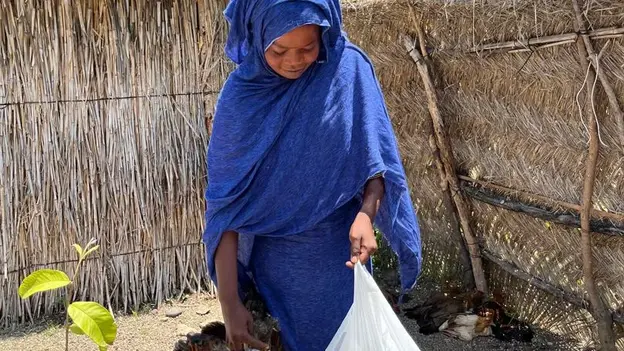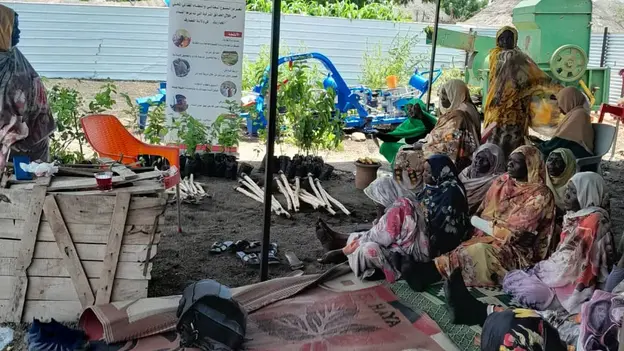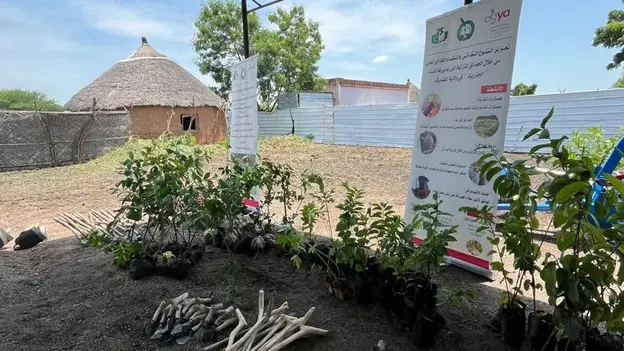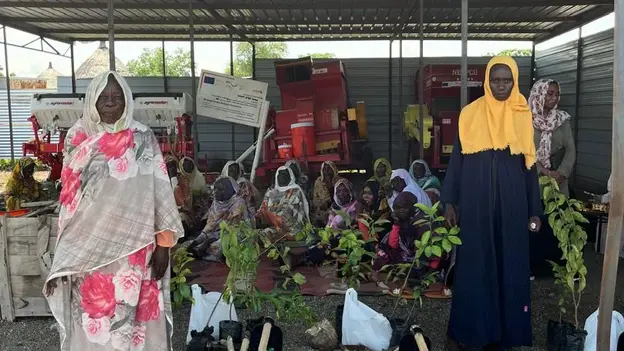Tandem Project
Enhancing Local Food Systems by Women-Managed Home Gardens
Agricultural Intervention & Awareness Campaign
In rural Sudan, micronutrient deficiency due to malnutrition remains a pressing public health issue. This problem, closely linked to poor dietary diversity, disproportionately affects pregnant and lactating women, children, and infants. A recent assessment of household and women’s dietary diversity revealed that most women rely on monotonous diets dominated by starchy staples like sorghum and millet. These diets lack crucial nutrients, including vitamin A, iron, and zinc, as they often exclude animal products, fruits, and vegetables. Improving dietary diversity is critical to addressing these nutritional deficiencies.
Promoting women-managed backyard home gardening known as Jubraka
This project aims to promote women-managed backyard home gardening, locally known as Jubraka, to enhance dietary diversity and nutrient intake among women and children. A Jubraka is a small garden, typically 0.11 to 2.1 hectares, located near the home, where women grow crops for both consumption and income. The crops, such as sweet sorghum, maize, and okra are chosen for their ability to mature quickly and meet daily household food needs, particularly during the lean months from July to September.
Despite the potential of these gardens to boost dietary diversity, Jubraka has been largely overlooked by researchers and funding institutions in Sudan. The vital role of women in managing these gardens and improving household nutrition often goes unrecognized. By supporting Jubraka and increasing the availability of nutrient-rich foods—fruits, vegetables, and pulses—this project aims to reduce malnutrition and improve health outcomes in local communities.
Scientific research with an immediate impact
This project takes a hands-on approach, directly involving women in rural communities through nutrition camps and education. Prof. Dr. Tilal Abdelhalim and his team investigate whether promoting low-cost Jubrakas alongside nutrition education can improve the diets of at-risk populations, particularly women and children. By empowering women to grow a variety of nutrient-dense crops, we aim to directly address malnutrition while also considering the ecological and financial benefits these gardens can provide.
Using the Nutrition Smart Village (NSV) model developed by Deutsche Welthungerhilfe e.V, we tackle the root causes of malnutrition with a multi-sector approach. This method combines education, hands-on gardening, and community rights awareness.
Nutrition camps: practical learning for nutrition safety
In collaboration with 12 villages across the Western and Eastern Gallabat and Gala-El-Nahal localities in Eastern Sudan, the project implements 15-day nutrition camps for female gardeners. These camps provide practical training on nutrition, crop diversification, and sustainable garden management. In addition to nutrition education, strategies for diversifying the cultivation of the Jubraka gardens are taught. Each participating household receives an agricultural starter kit with essential tools, fertilizers, chickens, and seedlings to help establish a diverse garden.
The project’s impact is assessed through its ability to reduce nutrient deficiencies, particularly in infants, children, and women. By equipping communities with knowledge and resources, this hands-on science initiative has the potential to create lasting change, improving lives and health outcomes in rural Sudan.
- Disciplines involved
- Agricultural Studies, Plant Biology, Anthropology
- Cooperation Partner
- Agricultural Research Cooperation - Sudan
- Project Title
- Jubraka: A promising approach for dietary diversification and enhanced food security in Sudan
- Year
- 2024
- Funding Scheme
- Tandem Project
- Countries Involved
- Sudan, Germany
- AGYA Publication
- Integrating sensory evaluation into biofortification breeding: assessing consumer acceptance and market segmentation of porridge made from biofortified pearl millet cultivars





